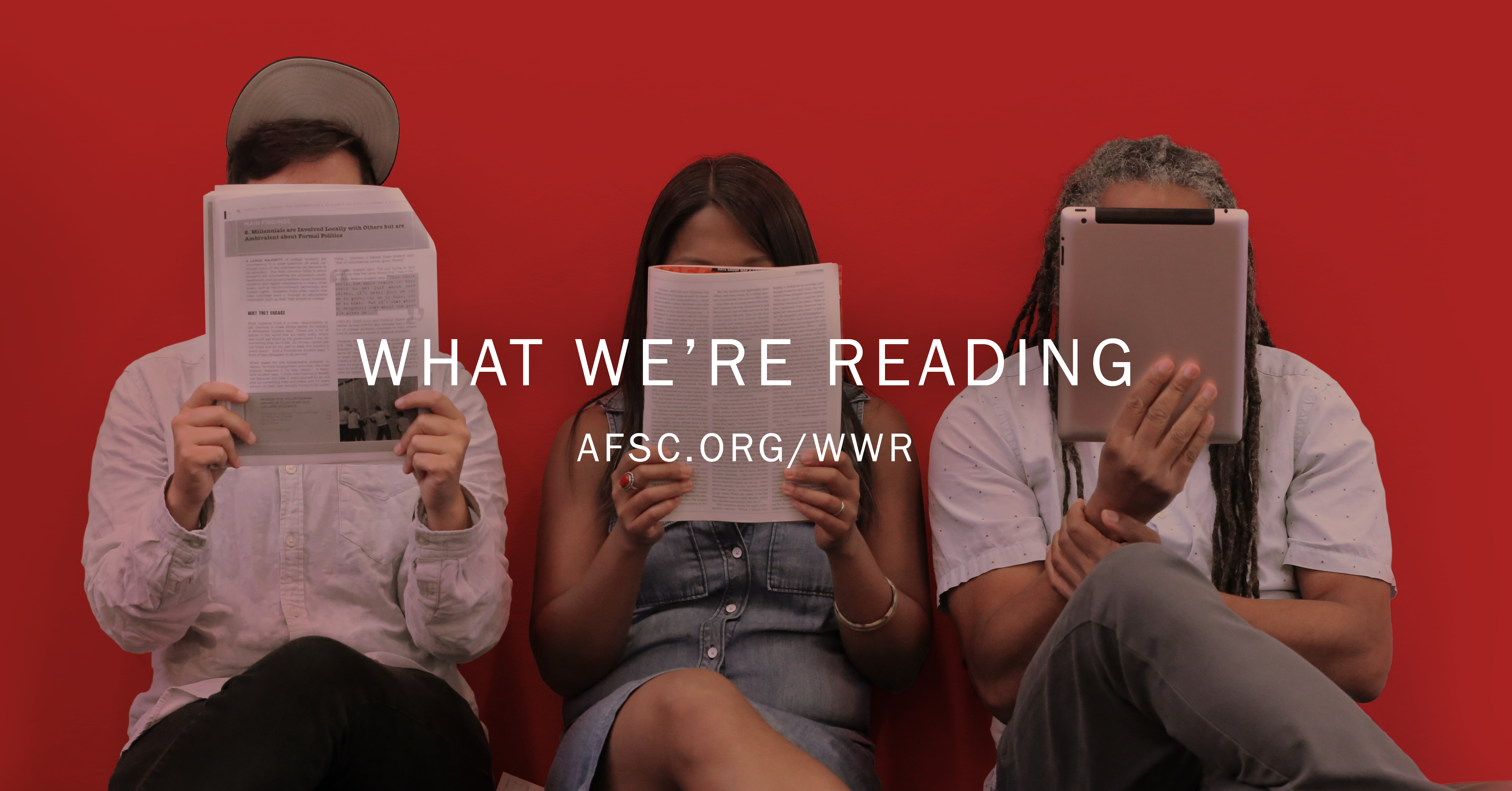
As the second week of the 2016 Summer Olympics winds to a close in Rio, we take a look at some of the best writing on the web exploring the intersections of sports, oppression, and social justice.
From Fencing in a Hijab to Swimming for Refugees, These 5 Olympians Inspire Us, by Liza Bayless, via YES! Magazine
 “Muhammad, a 30-year-old from New Jersey and graduate of Duke University, is the first American to wear a hijab while competing in the Olympic Games. In her first Olympics competition, she has not only brought much attention to the oft-forgotten sport of fencing but also won a bronze medal in a team competition. She speaks candidly about her place on the team as a Muslim in a country dealing with Islamophobia.”
“Muhammad, a 30-year-old from New Jersey and graduate of Duke University, is the first American to wear a hijab while competing in the Olympic Games. In her first Olympics competition, she has not only brought much attention to the oft-forgotten sport of fencing but also won a bronze medal in a team competition. She speaks candidly about her place on the team as a Muslim in a country dealing with Islamophobia.”
One Community’s Resistance Will Be the Rio Olympics’ Longest-Lasting Legacy, by Dave Zirin and Jules Boykoff, via The Nation
 “Last Saturday in Rio, as the Olympics roared a five-minute walk away, a group of residents and their allies gathered in Vila Autódromo, to celebrate the survival of a community perched at the edge of the Rio Olympic Stadium complex. Vila Autódromo managed to beat the odds against the five-ring bulldozer and in doing so, perhaps provided what will be the longest lasting 'Olympic legacy' of these games: the idea that you can fight the Olympic machine and win.”
“Last Saturday in Rio, as the Olympics roared a five-minute walk away, a group of residents and their allies gathered in Vila Autódromo, to celebrate the survival of a community perched at the edge of the Rio Olympic Stadium complex. Vila Autódromo managed to beat the odds against the five-ring bulldozer and in doing so, perhaps provided what will be the longest lasting 'Olympic legacy' of these games: the idea that you can fight the Olympic machine and win.”
Rio 2016: Simone Manuel’s Olympic gold is also a victory over swimming’s racist history, by Jenée Desmond-Harris and Victoria M. Massie, via Vox
 “Thursday night, Simone Manuel made history when she became the first Black woman in the Olympics to ever earn an individual swimming gold medal and the first African-American woman to win an individual medal.
“Thursday night, Simone Manuel made history when she became the first Black woman in the Olympics to ever earn an individual swimming gold medal and the first African-American woman to win an individual medal.
The groundbreaking win, which Manuel shared with Canada’s Penny Oleksiak after a tie, would be worth celebrating in the context of any sport. But the particularly racist history of American swimming pools—and resulting lack of opportunity for Black swimmers for decades—makes it an even more poignant victory.”
Welcome To The Anti-Olympics, Where Brazil’s Artists Are Taking On Their Government, by Angela Almeida and John Surico, via Huffington Post
 “Against this backdrop, with the country swimming in high debt and unemployment, the Olympic Games arrived. They could end up costing Brazil well over the budget of $4.6 billion. One poll found that 50 percent of Brazilians were against the Games. Ocupa MinC members argue that the mega-event exposed the vast inequality between the Rio that visitors see and the Rio that the government left behind for the people who actually live here―a sentiment that has led to widespread protests during the Games.”
“Against this backdrop, with the country swimming in high debt and unemployment, the Olympic Games arrived. They could end up costing Brazil well over the budget of $4.6 billion. One poll found that 50 percent of Brazilians were against the Games. Ocupa MinC members argue that the mega-event exposed the vast inequality between the Rio that visitors see and the Rio that the government left behind for the people who actually live here―a sentiment that has led to widespread protests during the Games.”